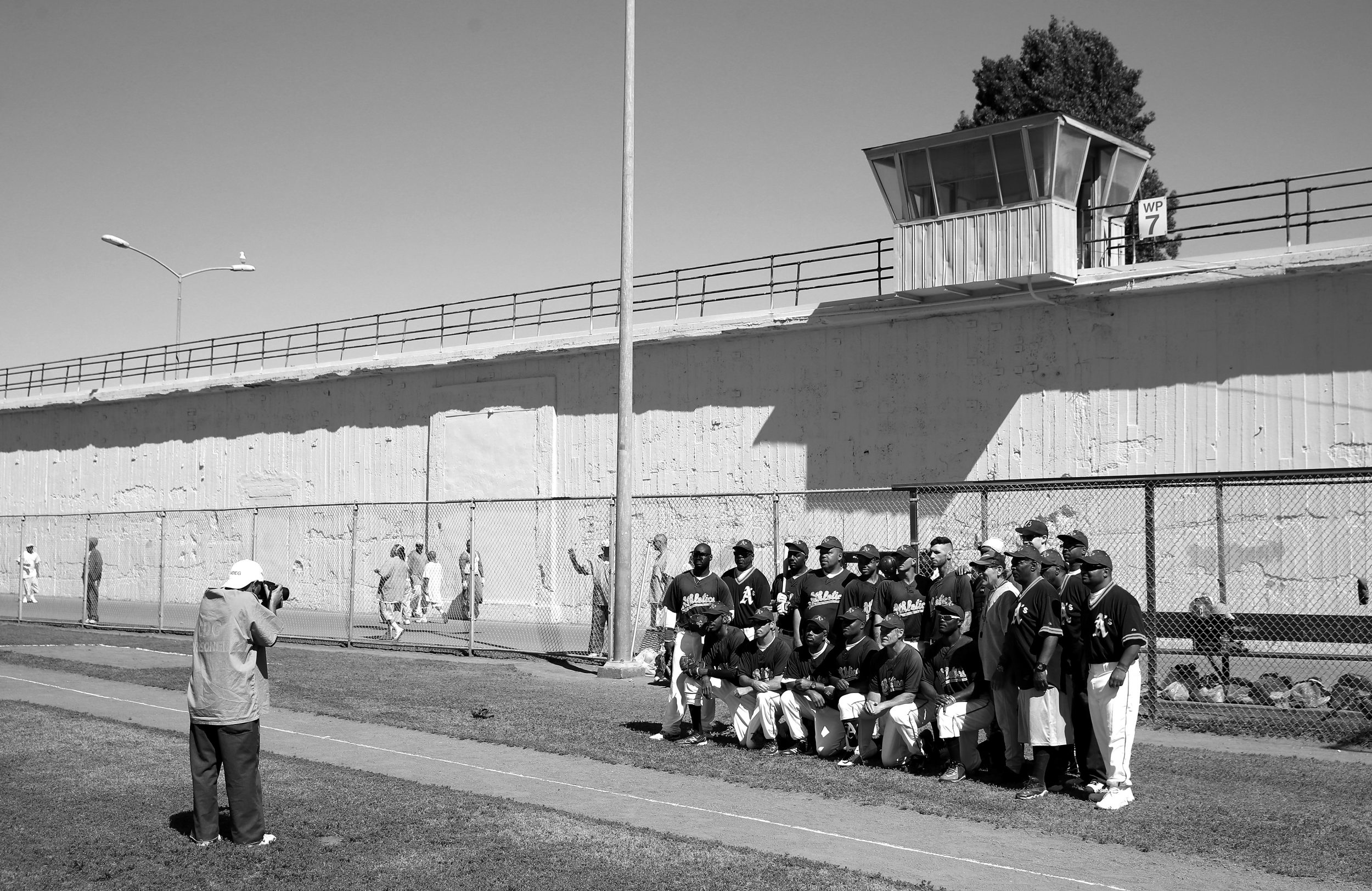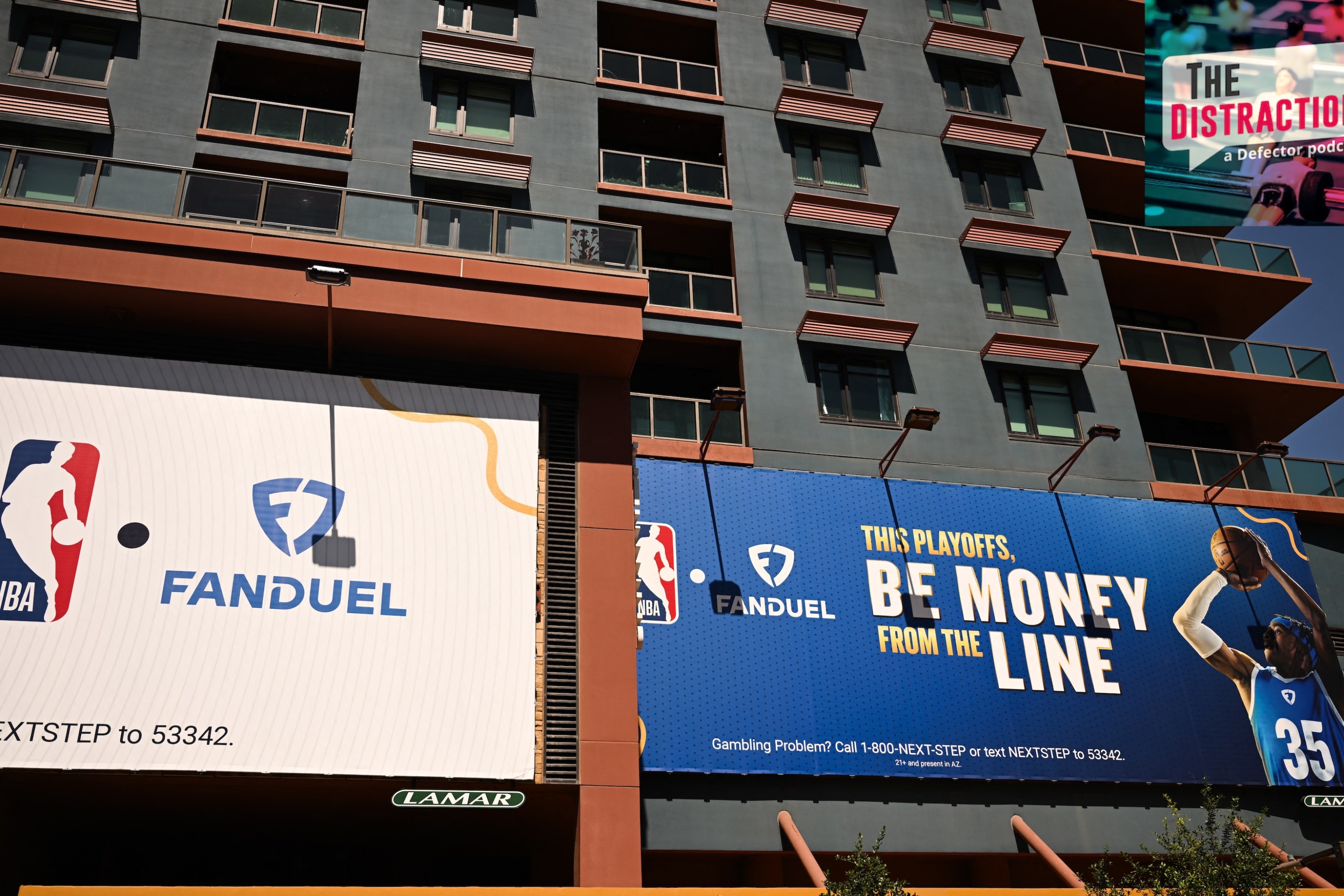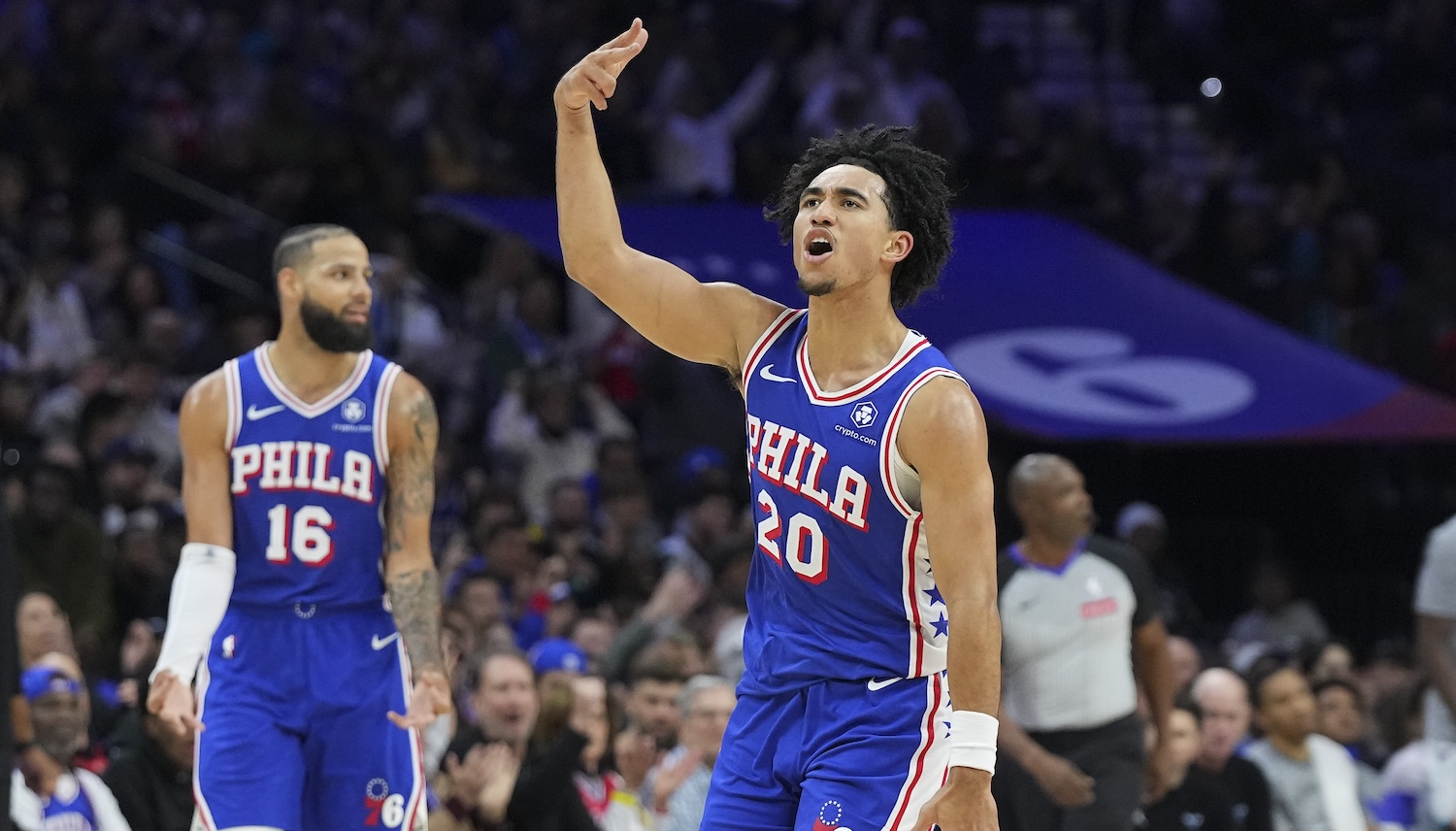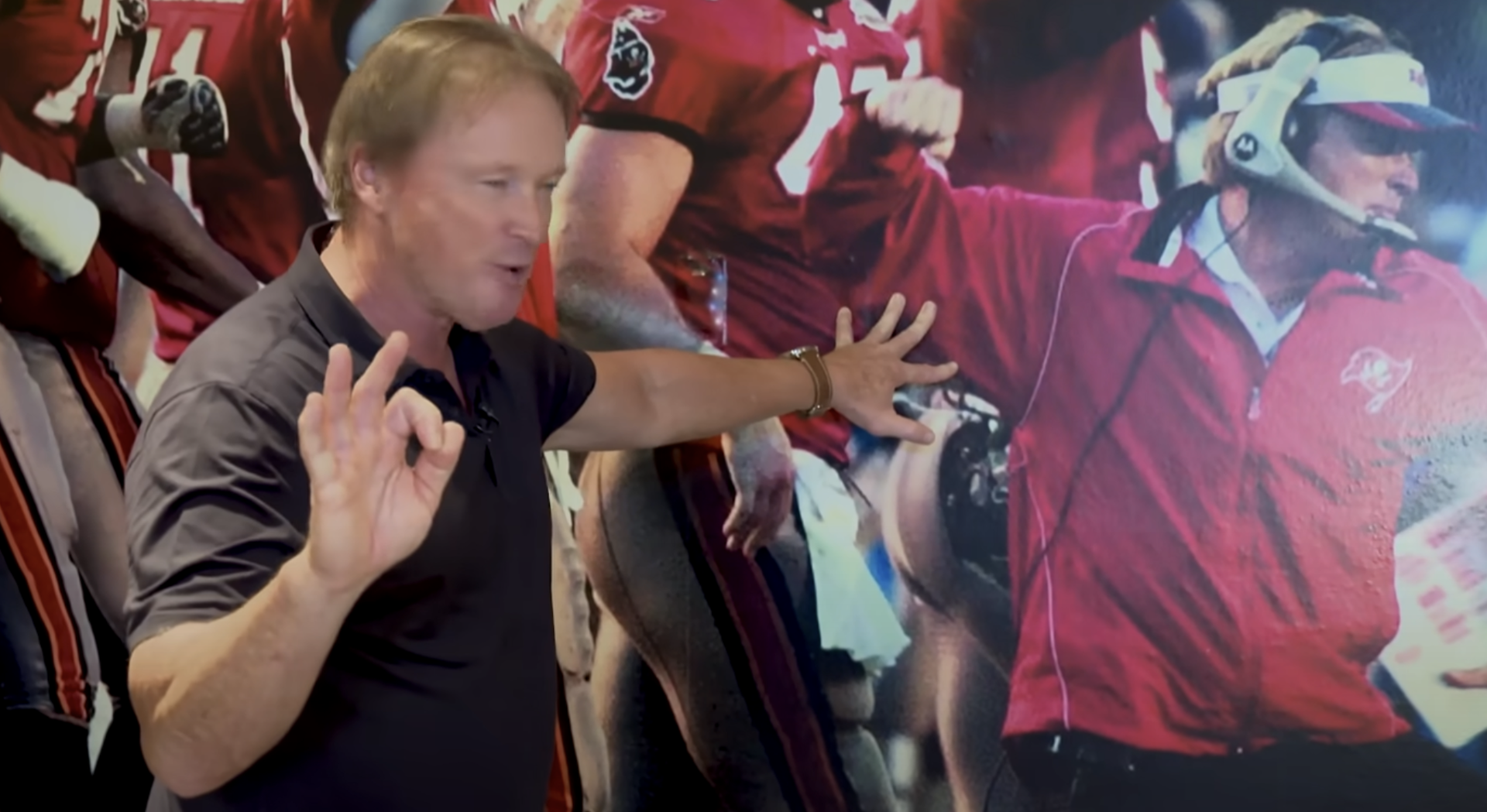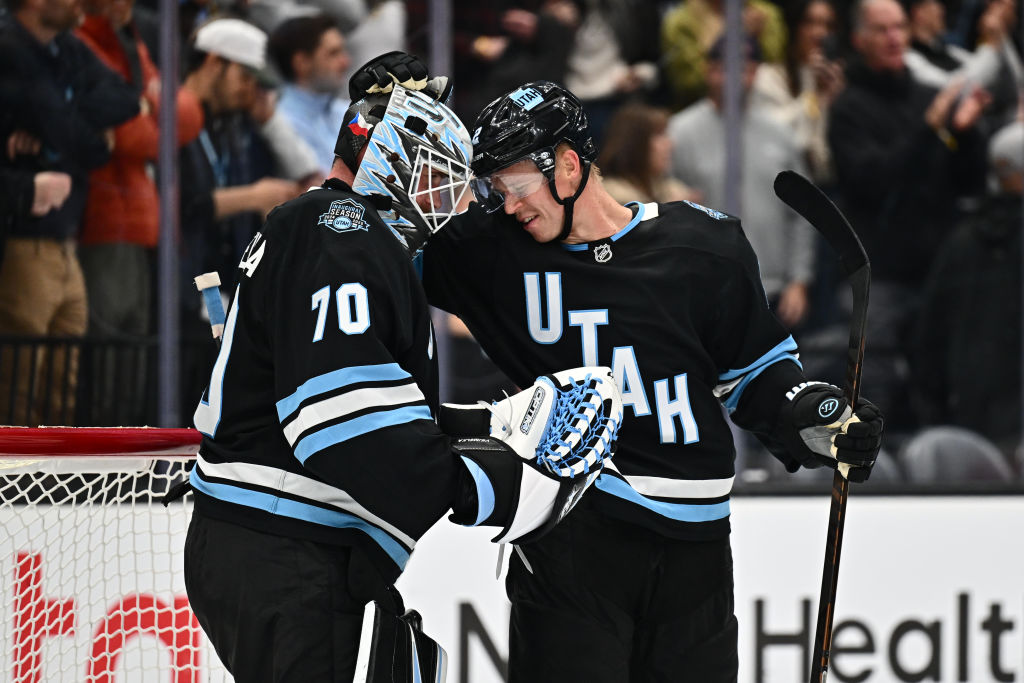Baseball has gotten pretty slow. Jayson Stark showed in a nifty little chart in his column Friday that the length of an average regular-season game has increased by a whopping 36 minutes over the last 40 years, from a tidy 2:33 in 1981 to a disgusting 3:09 in 2021. Not everyone is equally scandalized by this development, but the slowdown combined with baseball's other significant aesthetic regressions is seen by the league, at least, as a major problem. The kids of this day and age, we are told, simply do not have the attention span for a three-plus-hour baseball game.
There's hope! Stark reports that the addition of a 15-second pitch clock in the Low-A West League has not only reduced average game time by more than 20 minutes, it has also correlated with increases in runs per game, batting average, slugging, and the rate of home runs, as well as decreases in walks, hit batsmen, and strikeouts. What's more, players, managers, and observers of the Low-A West League say the baseball is just better for moving at a quicker tempo. There's a neat video in Stark's blog that presents a side-by-side comparison of elapsed time between pitches thrown in the Low-A West League versus Major League Baseball, and the difference is dramatic.
Adding a pitch clock to the game would be an example of using sensible systemic reforms to address a problem that—to the extent that slow play makes the league's product less appealing to consumers—affects the jobs and livelihoods of everyone involved. But I like to think we at Defector have an established and commendable history of shifting the onus away from systems and institutions and instead advocating for punitive and, some would say, even draconian measures for addressing a community's challenges. Thankfully, the arguments are already out there: The game of baseball has gone for the most part unchanged for more than a century; there is nothing new in the game that makes the players play it any more slowly than in the 1980s; if players are taking more time between pitches than they used to, truly it is because they are lazy and indecisive millennial pieces of scum. What the hell ever happened to personal accountability?
It was in this spirit that Friday afternoon Defector reached out to the wizards at Baseball Prospectus (subscribe here!) and with the assistance of baseball genius Lucas Apostoleris compiled a list of the 20 pitchers across MLB who take the most time between pitches in 2021. The numbers here are truly upsetting: Blue Jays reliever Rafael Dolis, posting a brutal 5.63 ERA, needs a ghastly and utterly unacceptable 27.77 seconds between pitches. Aroldis damn Chapman uses more than 28 seconds between pitches. That is simply way too much time to throw a pitch! Low-A West League pitchers throw nearly two pitches for every one thrown by the Yankees' closer. To me this is preposterous and deeply offensive.
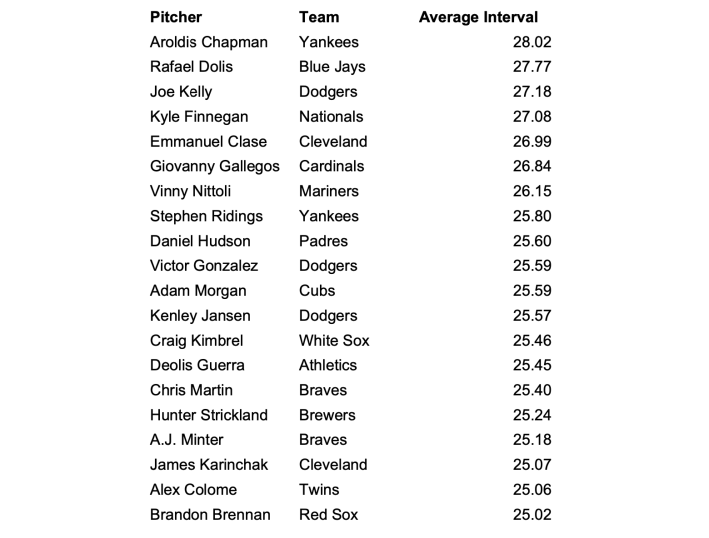
Baseball must get a grip on this problem. Stark reports that not everyone in MLB is on board with a pitch clock, least of all the slow players themselves. Catcher James McCann of the Mets, whose plate appearances with men on base average a gut-churning 29.2 seconds per pitch, told Stark that the very idea of a pitch clock is "ridiculous" and said it is the prerogative of players themselves to determine how much time passes between instances of literally anything happening in a baseball game.
We could not agree more. Baseball does not require a pitch clock. What it requires is a jail. Simply take the 20 men on that list up there, and 19* of the 20 men on the list of slowest hitters, and throw them in a special baseball jail where they can enjoy resort-level amenities and living arrangements, and play games amongst themselves at whatever excruciatingly slow pace they want. Just leave the rest of us out of it!
*Nationals slugger Juan Soto, whose average plate appearance requires more than 22 seconds per pitch, has been granted total immunity from prosecution.
